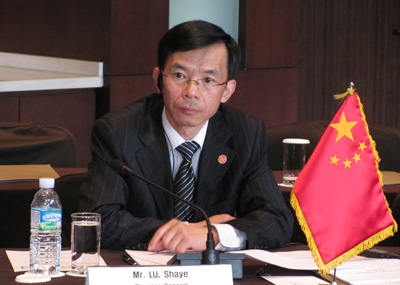Jason Kenney: China must face ‘great reckoning’ for early handling of COVID-19
Alberta Premier Jason Kenney, in a rare occurrence for a Canadian leader, is openly criticizing China over its early handling of the COVID-19 outbreak, saying Beijing must face a “great reckoning” for its conduct because it contributed to the spread and scale of the worldwide pandemic.
“I think the Chinese government played a significant role in the devastating public health and economic damage that is being experienced by the entire world,” he told a virtual meeting sponsored by the Canadian American Business Council on Wednesday.
“I do not think we should just forget this and walk past it," he said. "I think there is going to be, and there must be, a great reckoning for the role that China has played in this. "
“The fact that China allowed people to fly around the world from Wuhan even when they blocked Wuhanese travellers from the rest of China must never be forgotten. The role they played in suppressing whistle-blowing scientists who as early as December were reporting human to human transmission," he said, according to an audio recording obtained by The Globe and Mail.
Mr. Kenney also called for Canada and the United States to permanently, rather than just temporarily, resume manufacturing of critical health care supplies in North America rather than in China – what he called “onshoring production.” That would include chemical reagents necessary for testing, “so we are not dependent on a country whose strategic interests do not completely align with our own," he said.
Instead, he said this production should be “done in the North American space as an integrated trading zone.”
The Alberta premier isn’t the only Canadian public figure to blame the Chinese government for the scale and spread of the global COVID-19 pandemic. In published remarks, former Liberal justice minister Irwin Cotler, a leading international champion of human rights, said the world would have been far more prepared to handle the outbreak if Chinese Communist Party officials had not covered up and hid early news of the outbreak. He has called for sanctions on Chinese officials who mistreated or silenced whistleblowers, including medical staff and citizens, in the early days of the pandemic.
By comparison, Canadian Prime Minister Justin Trudeau has been careful not to target China for criticism, saying there will be time for scrutiny and questions later. He has acknowledged Canada is relying on China right now for medical supplies and has avoided comments such as those from Dominic Raab. The U.K. Foreign Minister said China will have to answer hard questions on how the outbreak happened, whether it could have been prevented and suggested it not be “business as usual” with China going forward.
Beijing has lashed out at critics. This week, China halted imports of some Australian beef after that country’s Prime Minister called for an investigation into the World Health Organization and the origins of the novel coronavirus in China.
Mr. Kenney said China’s aggressive response to criticism of its handling of COVID-19 should prompt Canada and the United States to rethink their relationships with the Asian country.
“The fact that the Chinese government in response is now becoming even more belligerent with even modest calls for accountability suggests to me that Western countries including Canada and the United States must have a reset in the relationship with China,” the premier said.
Paul Evans, a professor with the School of Public Policy and Global Affairs at University of British Columbia, called Mr. Kenney’s comments “surprising and inflammatory remarks from the premier of a province that is interested in the diversification of markets and foreign investment in its energy sector.”
Prof. Evans said an independent inquiry into the outbreak and first days of the virus is needed “but at the right time and in the spirit of scientific discovery to help the international community better manage epidemics in future." However, he predicted, the “reckoning” and “accountability,” called for by Mr. Kenney isnt likely.

He said Mr. Kenney’s call for more integration with the United States doesn’t make sense. “Most surprising is the case for decoupling and deeper integration with the U.S. in medical equipment, energy infrastructure and manufacturing. Diversification makes sense, but doubling down on dependence on the US is a very dangerous course at any time – especially in the era of America First.”
Chinese diplomats have pushed back against criticism of its handling of the outbreak, in forums including social media, TV, newspaper op-eds, and diplomatic correspondence.
A striking example was on April 12, when the Chinese embassy in Paris posted an unsigned article on its website that suggested care workers in Western nursing homes had abandoned their jobs, leaving residents to die. China’s ambassador in Paris, Lu Shaye, was summoned by the French foreign ministry and wrote a post saying ties between China and France remain strong, but did not withdraw the comments.


Senior Chinese Foreign Ministry officials on several occasions pressured EU diplomats to block publication of an EU report analyzing alleged Chinese disinformation online about the virus, according to documents seen by Reuters and diplomatic sources.
/cloudfront-us-east-1.images.arcpublishing.com/tgam/WD4N54YTLNJX5FAVGPO7WSB54I.jpg)
No comments:
Post a Comment
Comments always welcome!